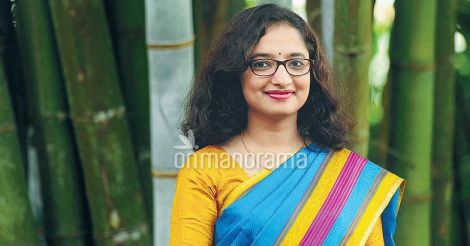Soorya Talk Festival has become an integral part of the cultural and intellectual life of Thiruvananthapuram. Much thought goes into the selection of speakers from among those who have commanded attention in one area or another, but no restrictions are imposed on the choice of subjects. This year, for the first time, the speakers were women from different walks of life like films, transgenders, literature, administration and advocacy. And each one of them shared her thoughts and experiences with purpose and passion.
When Divya Iyer, IAS, stepped on the stage, the audience expected her to speak on administration or on being married to an opposition legislator. But instead, she spoke about how technology has transformed lives and indicated how we can liberate ourselves from the stranglehold of machines. The story of a young man, who ended his life, leaving the secrets of his life behind a secure password, which could not be cracked and a young mother, who took care to build a room for his son without a door came as stark images of a growing catastrophe resulting from the domination of machine over man. Quoting celebrated writer Pico Iyer, she observed that the information revolution came to the world without a users’ manual, forcing us to deal with machines by trial and error.
Speed has become the major factor in communication and at no time in history have so many people simultaneously communicated instantaneously, creating a cacophony than a symphony. Since no one has the time to separate the grain from the chaff, they indiscriminately consume all that comes to them. Studies have shown that those who work only with machines and are not required to interact with real people develop disorders of various kinds and the only cure for them is interaction with real human beings. Robots may work, but they do not feel as humans do.

Divya quoted the father of the white revolution in India, Verghese Kurien, who quit his job in the Agriculture Department as he thought there was not enough work there to justify the salary he was paid. In fact, job satisfaction comes when you work more than the remuneration demands. The lesser the remuneration and greater the work, you get greater recognition in society. If you only work for the remuneration, you cannot expect appreciation or gratitude.
We live in an attention economy where ‘likes’ are valued more than dollars. Facebook often gives you a distorted image of what you are and how the others see you. Neuroscience has taught us that our emotions arise either from fast neural process or from slow neural process. What distinguishes human emotions from animal instincts like love, response, appreciation and forgiving come from slow neural process, while lust, reaction, envy and anger come from fast neural process. Speed inevitably hastens the neural process with its consequences. Patience is the key to generate gentler emotions. In the days of letter writing and snail mail, we had the patience to wait for responses for days together without hurting relationships, while today, we can hardly wait for the blue ticks to appear after sending a WhatsApp message and all hell breaks loose when the response does not follow immediately.
Today, mankind pursues happiness through Happiness Projects. Bhutan estimates its development through the Gross National Happiness Index and it has a negative carbon footprint. Japanese culture has a way of measuring happiness through “ikigai’ or the value of life. The word “ikigai” is usually used to indicate the source of value in one's life or the things that make one's life worthwhile. Secondly, the word is used to refer to mental and spiritual circumstances under which individuals feel that their lives are valuable. It's not necessarily linked to one's economic status or the present state of society. Even if a person feels that the present is dark, but they have a goal in mind, they may feel ikigai. Behaviour that make us feel 'ikigai' are not actions we are forced to take — these are natural and spontaneous actions. A human being has to figure out what he lives for by identifying what he loves, what his capabilities are and how these can be developed for the good of the world. In essence, it is a way of finding satisfaction by deploying one’s capabilities for the good of society. This is very much like children being asked to record a good deed that they did each day or like the ‘Kindness Journal’ that people keep to relish the good deeds and to encourage themselves to do more.
Divya concluded by saying that human beings begin by doing what benefits themselves most and helps self-preservation. But as they progress, they should benefit their own friends and relatives and then do good for others not related to them. Ultimately, it should benefit the entire universe: “Loka Samastha sukhino bhavanthu!”
The discussion after the talk covered a wide variety of topics. She referred to people seeking “black hole resorts” without any communication with the rest of the world and detoxing of the children to escape the evils of technology. Asked whether criticizing social media is justified since it is part of the development of human civilization and an indispensable part of modern life, she said that she was not opposed to technology, but only concerned about its hidden dangers. She also spoke about the 'Aladdin factor,' which demands that certain actions are necessary for any person to fulfill his wishes. The genii does not appear before a person who keeps the lamp without cleaning it and rubbing it at the right moment.
The feast of philosophy that Divya gave to the audience was unique among the Soorya talks. She moved from the personal to the universal and back again like a craftsman weaving a tapestry with different kinds of yarn. I could see a sliver of enlightenment on the faces of the audience as they moved out of the hall in a pensive mood.
Thank you, Divya, for a thoughtful and meaningful talk. No summary can do justice to it, but I thought that those who did not attend the talk should also savor its flavor.

























 Image for representation only. File
Image for representation only. File